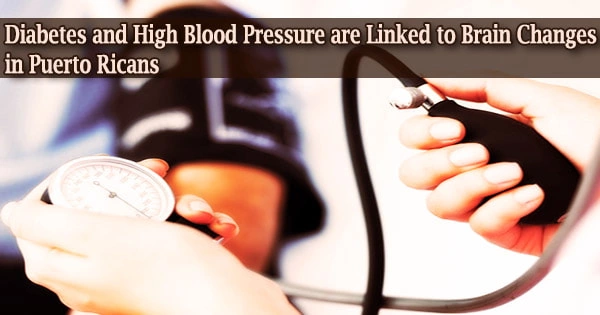According to a study published in the March 30, 2022, online issue of Neurology®, the medical journal of the American Academy of Neurology, the high rate of diabetes and high blood pressure in Puerto Ricans may be linked to structural alterations in the brain.
“This high prevalence of people who have both diabetes and high blood pressure may be a key factor contributing to health disparities in cognitive impairment in Puerto Rican people compared to white people of the same age range,” said study author Bang-Bon Koo, Ph.D., of Boston University in Massachusetts.
Although Hispanics account for more than 18% of the population in the United States, they are underrepresented in large studies on disease prevalence and are often treated as a whole group rather than looking at smaller groups from different backgrounds such as Puerto Ricans, Cubans, or Mexican Americans.
Diabetes is a chronic condition that happens when the pancreas fails to produce enough insulin or when the body’s insulin is ineffectively used. Insulin is a hormone that helps to keep blood sugar levels in check.
Uncontrolled diabetes causes hyperglycemia, or high blood sugar, which causes catastrophic damage to many of the body’s systems, including the neurons and blood vessels, over time.
The study included 192 Puerto Ricans from the Boston region who were followed for more than ten years as part of a broader investigation. Participants had their brains scanned and their cognitive abilities tested.
The decline in brain health and cognitive capacity in people in the Puerto Rican study who had both diabetes and high blood pressure was comparable to people in another study who had mild cognitive impairment and progressed to Alzheimer’s disease within five years. Our results suggest that the high rate of diabetes and high blood pressure among Puerto Rican people may contribute to the higher risk of Alzheimer’s disease within this group.
Bang-Bon Koo
They were split into four groups depending on whether or not they had type 2 diabetes and high blood pressure. There were 54 people who had neither ailment, 67 people who had high blood pressure but not diabetes, and 61 people who had both disorders. Despite the fact that ten patients had diabetes, none of them had excessive blood pressure.
Because of its tiny size, this group was excluded from the study. The participants were also compared to those in two other big trials, each of which included Hispanic and white participants.
According to the report, approximately five times as many Puerto Ricans as white people had diabetes, with 32 percent compared to 7%. High blood pressure was found in twice as many Puerto Ricans as it was in whites, 67 percent vs 39 percent.
High blood pressure, often known as hypertension, is a condition in which the blood pressure is higher than normal. Blood pressure readings that are regularly higher than normal can lead to a diagnosis of high blood pressure (or hypertension). High blood pressure is a condition that often develops over time.
It can occur as a result of poor lifestyle choices, such as a lack of regular physical activity. Certain medical problems, such as diabetes and obesity, might also increase the risk of high blood pressure.
The hippocampus area of the brain, which plays a role in learning and memory and is impaired by Alzheimer’s disease, had the smallest volume in Puerto Ricans with both illnesses, according to brain scans.
In comparison to persons who had neither ailment, people with both had obvious patterns of degeneration in the white matter of the brain, while people with high blood pressure only had a little degree of damage.
People with both disorders also exhibited a bigger gap between their actual age and their estimated “brain age,” indicating that aging was damaging their brain to a greater extent than those without both conditions.
Other characteristics such as age, sex, and education level were taken into account while calculating the results.
“The decline in brain health and cognitive capacity in people in the Puerto Rican study who had both diabetes and high blood pressure was comparable to people in another study who had mild cognitive impairment and progressed to Alzheimer’s disease within five years,” Koo said. “Our results suggest that the high rate of diabetes and high blood pressure among Puerto Rican people may contribute to the higher risk of Alzheimer’s disease within this group.”
Because of the small number of participants, those with type 2 diabetes who did not have high blood pressure were excluded from the study. The National Institutes of Health and the Department of Defense both funded the research.





